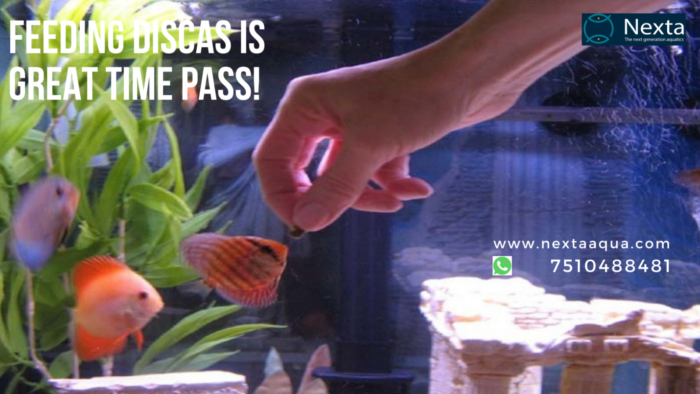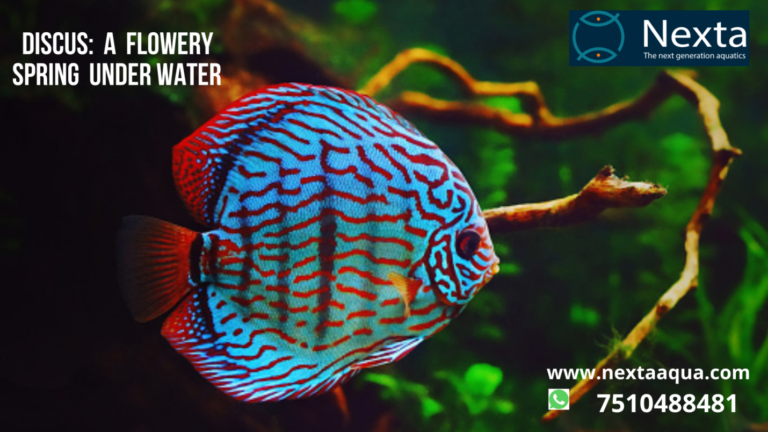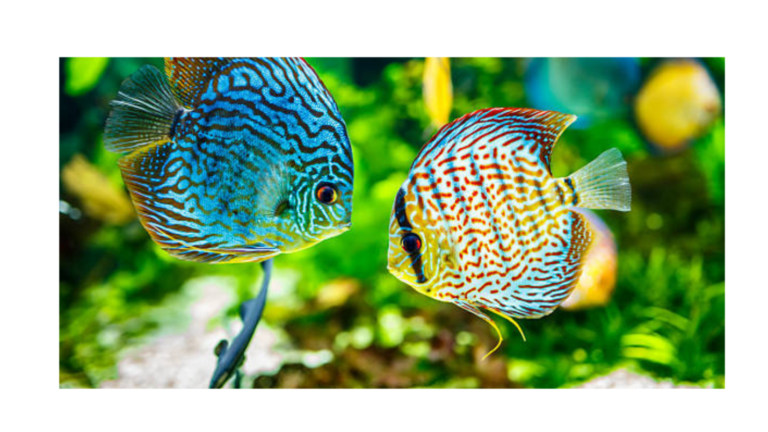Discus fish care feeding can be intimidating if you don’t know where to start, but it doesn’t have to be!
With this guide to Discus fish care feeding, you’ll learn everything you need to know about the food these beautiful fish eat and how much to feed them.
Plus, since discus fish are omnivores, you’ll find out which foods they enjoy the most.
So if you have discus fish in your home or are considering adding them to your aquarium, start here with our guide on discus fish care feeding.
ALSO READ: What Do Discus Fish Eat?
How do you feed your discus fish? An improper diet can lead to illness, stunted growth, and ultimately death of your discus fish, so it’s important to learn about how to feed your discus fish properly and give them the best chance at living long and healthy lives. Luckily, we’ve generated all the information you need in one place!
Types of Discus Fish Care Feeding
In general, discus fish care feeding is pretty similar across species.
The main differences in discus fish care feeding lies in what you feed them and how much of it you give them.
As with all things, more is not necessarily better; too much food can cause physical problems for your discus fish.
Keep feeding frequency moderate (no more than two times per day), and vary your discus fish’s diet as best you can; both will help ensure your pet stays healthy.
It’s also important to consider how easy a particular food item is for your pet to eat.
For example, if its mouth or throat are injured from fighting or disease, it might be difficult for your pet to eat pellet-type foods; try crushed flakes instead.
ALSO READ: Guide on Wild Type Discus
Lighting Required for Discus Fish Care Feeding
Discus fish are native to South America and don’t require any special lighting.
In fact, Discus fish can tolerate higher levels of chlorophyll than other types of aquarium fish, so adding plants is a great way for them to get some extra nutrients.
This doesn’t mean you should ignore Discus fish light requirements all together though.
If you decide to add an UnderGravel Filter (UGF) or other filtration system that removes dirt and uneaten food from your tank, you may want to consider installing lighting over it so that leftover food doesn’t rot in the water column.
Otherwise your aquarium will quickly become toxic for all of your fish, not just your Discus fish!
Even if you don’t choose to use a UGF, adding more live plants around the edges of your aquarium will make sure everyone gets enough natural sunlight.
Even if you add heavy-duty full spectrum lights directly above your Discus fish tank (and provide UV rays with either ReptiSun 5.0 bulbs or similar), discus still need some access to natural sunlight as well.
They like bright areas where they can come out and explore their surroundings when they feel comfortable doing so.
Just be sure to never leave full spectrum lights on 24/7 since these kinds of bulbs can cause stress among multiple different species within one environment!
ALSO READ: Discus Aquarium- Beginners Guide
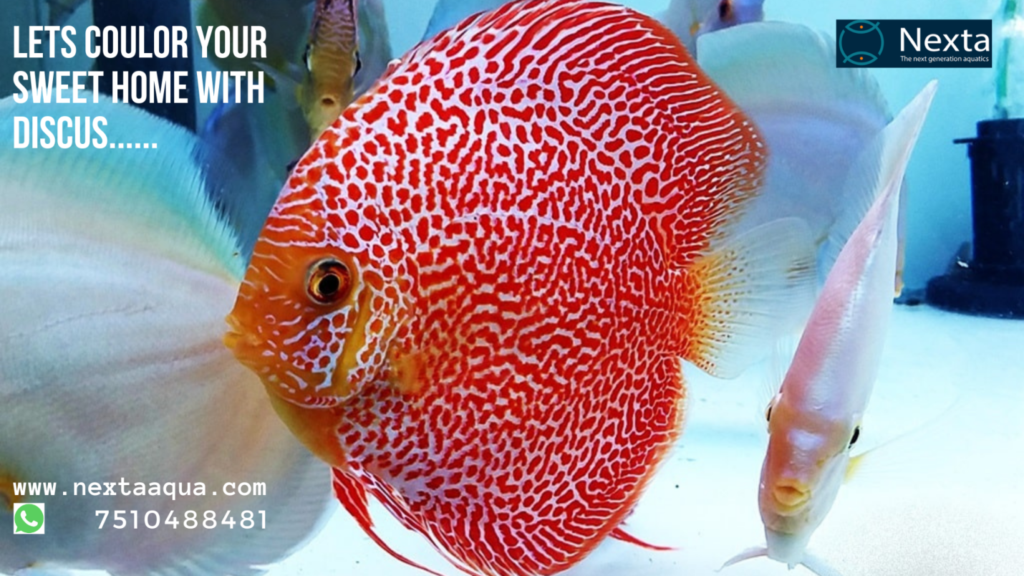
Discus Fish Care Feeding Choices
There are a variety of discus fish foods on the market, but there’s not much variation when it comes to what these animals need in terms of nutrients.
Discus fish are carnivores that thrive on meat-based food sources, particularly those that have plenty of protein and a mix of fatty acids.
Frozen or freeze-dried foods are always preferable because they provide bacteria-free meals with enhanced shelf life.
Once you’ve made your selection, it’s important that you follow some basic discus fish care feeding guidelines.
First and foremost, feed your pets at least three times each day: 2:00 p.m., 5:00 p.m., and 8:00 p.m..
This schedule keeps things consistent while ensuring that you don’t forget an important mealtime.
Always place new frozen/freeze-dried food right into their tank; never place anything in advance because the Discus feeds off smell, meaning anything stored beforehand will go untouched until mealtime.
How Many Times Per Day?
Discus fish should be fed once or twice a day, as much as they can eat in five minutes.
This allows them time to digest their food, and avoids overfeeding.
The usual diet of a discus fish consists of many different species of insect larvae, crustaceans and worms.
Larger discus fish may also feed on live or freeze-dried brine shrimp, small daphnia, grindal worms and tubifex worms.
These items are usually available at pet stores that specialize in keeping discus fish and other tropical aquarium fish; however, you can also search online for suppliers who sell frozen or freeze-dried insects for pet foods.
Freeze-dried diets are very convenient and take little preparation, but it is important not to rehydrate these products with tap water because that would introduce chlorine into your discus tank’s water, which is harmful to most species of aquarium fish.
In addition, avoid using chlorinated city water if possible when filling up your tank with freshwater.
This could lead to serious problems if your discus aren’t accustomed to drinking chlorinated water; use bottled spring water instead of that.
ALSO READ: Water Condition of Discus Aquarium
How Much Should You Feed?
When it comes to Discus fish care feeding, most experts will tell you that overfeeding is a far more common mistake than underfeeding.
The vast majority of discus deaths in captivity are due not to disease but starvation.
When learning how to feed your discus fish, start slowly with small amounts at first (1/4-1/2 of what your pet would typically eat) and make sure it’s visible on his side for about five minutes before removing any excess food from his tank.
This way you can be certain he was able to fully digest what he ate.
If after 30 minutes there is still food on his side of the tank, continue by adding another 1/4 serving each time until you see that he has eaten all of it after 5-10 minutes.
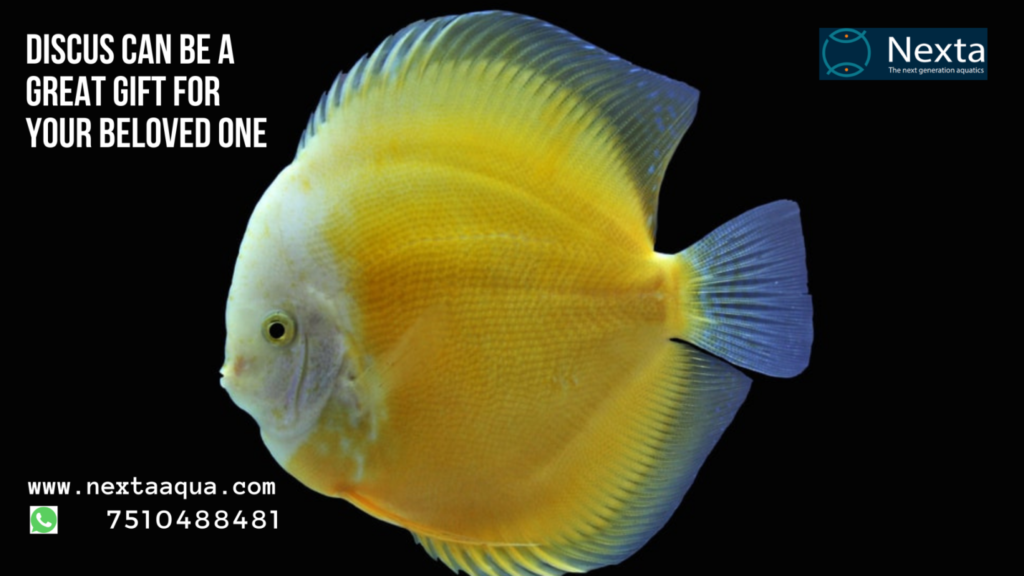
Discus Fish Care Feeding Foods
To start out, there are four main types of foods you should have on hand when beginning your Discus fish care feeding schedule.
These include carnivore pellets, freeze-dried bloodworms, fresh veggies and live worms.
The ratios of which food you give your discus fish will depend upon their individual size and development.
Generally speaking, however, discus fish that are three to six months old can be fed two times a day using a 1:1 ratio; one pellet for every half-inch of discus fish in height per feeding session.
Discus fish that are between six and 12 months old can generally be fed once a day at a 3:2 ratio (three bloodworms or chunks of meat to two pellets).
Discus fish over 12 months old should only need to eat once every other week.
Although it’s recommended that all discus fish receive fresh water along with each feeding session—this is particularly important for young, developing discus fish—it’s also crucial not to change up their diet too quickly or feed them more than they’re used to having.
Too much variation could upset their digestive tract causing long-term health problems down the road!
ALSO READ: Setting Discus Aquarium
Last Word About Discus Fish Care Feeding
Discus fish are carnivorous and they consume crustaceans, insects, worms, snails and small fishes.
Their diet should be supplemented with tablets containing vegetable proteins (Spirulina), but it is important that your discus gets enough calcium for healthy growth and egg production.
A pinch of chalk or cuttlefish bone once a week will suffice.
It is best to feed your discus one meal per day and make sure their water temperature doesn’t fall below 75F (24C).
If you do not provide enough food for your discus fish, it may resort to eating its own eggs!
That is why many breeders prefer not to overfeed their pet until after the spawning process has been completed.
Nextaaqua is a unique ornamental fish farm in India. We mainly focus on the production, raising, and grooming of Discus Fishes and their tankmates. Contact us for more.

